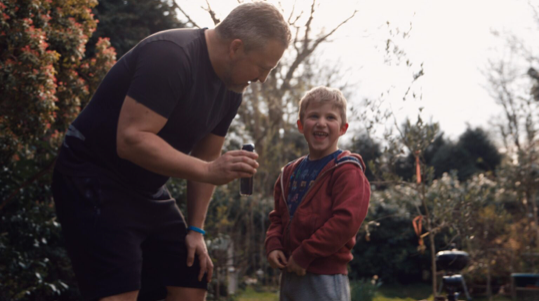Explore Psychological Support Options & Practical Steps for Mental Health
- Alex Smith
- Sep 25, 2025
- 4 min read
Living with Duchenne Muscular Dystrophy (DMD) presents unique challenges that affect not only physical health but also emotional and psychological well-being. As someone deeply committed to supporting families and patients navigating this journey, I understand how vital it is to have access to practical mental health strategies and psychological support options. In this post, I will share thoughtful, actionable steps that can help improve mental health and provide comfort during difficult times.
Understanding Psychological Support Options for Families and Patients
When facing a diagnosis like Duchenne Muscular Dystrophy, the emotional impact can be overwhelming. Psychological support options are essential to help families and patients cope with stress, anxiety, and feelings of isolation. These options range from professional therapy to community support groups, each offering unique benefits.
Professional Therapy: Engaging with a psychologist or counsellor who specialises in chronic illness, in our case a Duchenne specialist can provide a safe space to express fears and frustrations and particularly effective in helping individuals reframe negative thoughts and develop coping mechanisms.
Support Groups: Connecting with others who share similar experiences can reduce feelings of loneliness. Many families find comfort in peer-led groups where they can exchange advice, share stories, and build a supportive network.
Online Resources: For those who may find it difficult to attend in-person sessions, online counselling and forums offer flexible access to mental health support. These platforms can be especially helpful for carers who have limited time.
Practical Tip: When exploring psychological support, consider what feels most accessible and comfortable. Sometimes starting with a phone call or online chat can be less intimidating than face-to-face meetings.

How can you improve mental health?
Improving mental health is a gradual process that involves small, consistent steps. Here are some practical ways to nurture emotional well-being while managing the complexities of Duchenne Muscular Dystrophy:
Establish a Routine: Creating a daily schedule can provide a sense of control and normality. Try to include time for rest, physical activity, and enjoyable hobbies.
Practice Mindfulness: Mindfulness exercises, such as deep breathing or guided meditation, help reduce anxiety and promote relaxation. Even a few minutes a day can make a difference.
Stay Connected: Maintaining relationships with friends and/or family is crucial. Regular social interaction combats isolation and offers emotional support.
Set Realistic Goals: Break down tasks into manageable steps. Celebrate small achievements to build confidence and motivation.
Seek Professional Help When Needed: Don’t hesitate to reach out to mental health professionals if feelings of sadness or anxiety become overwhelming. This is where a Chrysalis Grant from Harrison's Fund is a strong option
Engage in Physical Activity: Adapted exercises or a brisk walk suitable for an individual’s abilities can boost mood and overall health
Educate Yourself: Understanding Duchenne Muscular Dystrophy and its effects can empower families to make informed decisions and reduce uncertainty.
By integrating these steps into daily life, families and patients can foster resilience and improve their quality of life.

The Role of Community and Family in Mental Health Support
The strength of a supportive community cannot be overstated. Families affected by Duchenne Muscular Dystrophy often find that emotional support from loved ones and peers is a cornerstone of mental well-being.
Open Communication: Encouraging honest conversations within the family helps everyone express their feelings and reduces misunderstandings. It’s important to listen actively and validate each other’s experiences.
Shared Responsibilities: Caring for someone with DMD can be demanding. Sharing caregiving duties among family members or seeking respite care can prevent burnout and maintain emotional balance.
Community Involvement: Participating in local or online groups dedicated to DMD can provide valuable resources and a sense of belonging. These communities often organise events, fundraisers, and awareness campaigns that uplift and connect members.
Encouraging Independence: Supporting the individual with DMD to engage in activities they enjoy and can manage fosters self-esteem and autonomy.
By fostering a nurturing environment, families can create a foundation of emotional strength that supports everyone involved.

Practical Tools and Resources to Support Mental Health
Access to the right tools and resources can make a significant difference in managing mental health. Here are some practical aids that families and patients might find helpful:
Mental Health Apps: Apps like Headspace or Calm offer guided meditation and relaxation techniques tailored to different needs.
Educational Materials: Books, podcasts, and websites dedicated to chronic illness and mental health provide valuable insights and coping strategies.
Crisis Helplines: Knowing where to turn in moments of crisis is essential. Keep contact details for mental health helplines readily available.
Journaling: Writing down thoughts and feelings can be therapeutic and help track emotional patterns.
Creative Outlets: Engaging in art, music, or other creative activities can provide emotional release and joy.
Physical Aids: Tools such as weighted blankets or sensory toys may help reduce anxiety and improve sleep quality.
Utilising these resources can empower families to take an active role in their mental health care.
Embracing Hope and Resilience Through Mental Health Awareness
Raising mental health awareness is a vital part of supporting families affected by Duchenne Muscular Dystrophy. Understanding that mental health is just as important as physical health encourages compassionate care and reduces stigma.
It is my hope that by sharing these practical steps and psychological support options, families and patients feel more equipped to face the challenges ahead. Remember, seeking help is a sign of strength, and no one has to walk this path alone. Together, with the right support and resources, it is possible to nurture hope, resilience, and a brighter future.
If you or someone you know is struggling, please reach out to trusted professionals or support networks. Your mental well-being matters deeply.
Thank you for taking the time to explore these practical steps for mental health. I hope they can help in some way to make a difficult journey a little bit easier.




Comments